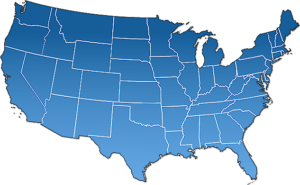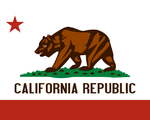 At least 62 bills relating to public notice in newspapers have been introduced in 25 different states through the first week of February, according to a review of bill-tracking software used by the Public Notice Resource Center. In addition, no fewer than 16 other bills targeting public notice in three states carried over from 2016 and are still active.
At least 62 bills relating to public notice in newspapers have been introduced in 25 different states through the first week of February, according to a review of bill-tracking software used by the Public Notice Resource Center. In addition, no fewer than 16 other bills targeting public notice in three states carried over from 2016 and are still active.
Many of the new bills merely add or change requirements for particular categories of notice, but at least 12 states are considering legislation that would move all or most of their official notices from newspapers to websites operated or controlled by government units. The potential that any of these bills will become law varies by state, according to newspaper lobbyists, but nobody is taking any of them lightly.
Q & A: Beth Bennett, Wisconsin Newspaper Association
 In 2016, the Wisconsin legislature created a study committee to “update and recodify” the statute relating to public notice “to reflect technological advances and remove obsolete provisions.” The committee was charged with considering changes to the statute that would “allow for information to be made available only electronically or through nontraditional media outlets.”
In 2016, the Wisconsin legislature created a study committee to “update and recodify” the statute relating to public notice “to reflect technological advances and remove obsolete provisions.” The committee was charged with considering changes to the statute that would “allow for information to be made available only electronically or through nontraditional media outlets.”
The Wisconsin Newspaper Association (WNA) mounted an impressive effort to convince the committee that newspapers and their websites were still the right place for public notice. The committee met three times and ended its review on Oct. 10, deciding to recommend only one change to a minor category of notices. We spoke with WNA Executive Director Beth Bennett about the process.
AP Reports on “Fight Against Publishing Notices in Newspapers”
 On the final day of 2016, the Associated Press provided subscribing news organizations with a brief story about the “fight against publishing notices in newspapers”. The piece covered Gov. Chris Christie’s stalled attempt to eliminate newspaper notice in New Jersey, and also mentioned new public notice laws passed last year in Arizona and Massachusetts.
On the final day of 2016, the Associated Press provided subscribing news organizations with a brief story about the “fight against publishing notices in newspapers”. The piece covered Gov. Chris Christie’s stalled attempt to eliminate newspaper notice in New Jersey, and also mentioned new public notice laws passed last year in Arizona and Massachusetts.
“I think with the state legislatures it’s just simply a matter of saving a few bucks,” Kip Cassino, a media analyst at Borrell Associates, told AP reporter Josh Cornfield. “It’s going to keep coming up and I think before the next decade ends, I don’t think you’re going to see the legals in newspapers anymore.”
Christie’s Effort to Eliminate Newspaper Notice in NJ Stalls
 It isn’t unusual for politicians seeking revenge for negative press coverage to retaliate by sponsoring legislation that would eliminate public notice advertising in newspapers. It is unprecedented, however, for the press to openly acknowledge the lawmaker’s intentions and to dub the legislation a “newspaper revenge bill.”
It isn’t unusual for politicians seeking revenge for negative press coverage to retaliate by sponsoring legislation that would eliminate public notice advertising in newspapers. It is unprecedented, however, for the press to openly acknowledge the lawmaker’s intentions and to dub the legislation a “newspaper revenge bill.”
Such is the bruising nature of politics in New Jersey, where Gov. Chris Christie’s effort to move all public notices in the state to government websites was withdrawn from consideration on Monday afternoon. But the newspaper industry isn’t out of the woods yet. The bill remains active and Christie has vowed to make it his “top priority” in 2017. The speaker of the General Assembly has also announced his intention to return to the issue “very soon.”
Texas Legislative Committee Recommends Maintaining Newspaper Notice
 Support for public notice in newspapers received another boost on Nov. 1, when a joint legislative committee issued a report (PDF) recommending that Texas continue to rely on newspapers to inform the public about official actions in the state. The Joint Interim Committee on Advertising Public Notices suggested the legislature “maintain the current print requirement” and called newspapers “a third party who both creates a lasting and reliable record of the notice and acts as a gatekeeper to ensure that governments post their notices correctly.”
Support for public notice in newspapers received another boost on Nov. 1, when a joint legislative committee issued a report (PDF) recommending that Texas continue to rely on newspapers to inform the public about official actions in the state. The Joint Interim Committee on Advertising Public Notices suggested the legislature “maintain the current print requirement” and called newspapers “a third party who both creates a lasting and reliable record of the notice and acts as a gatekeeper to ensure that governments post their notices correctly.”
Kentucky, Wisconsin Conclude Public Notice Reviews on Positive Note
 Committees formed to review public notice laws in two states adjourned last month after showing strong support for maintaining public notices in newspapers. Wisconsin’s Legislative Study Committee on Publication of Government Documents and Legal Notices ended its review on Oct. 10, deciding to recommend only one change to a minor category of notices. Three days later, the Kentucky General Assembly’s Program Review and Investigations Committee ended its 27-month study with no changes.
Committees formed to review public notice laws in two states adjourned last month after showing strong support for maintaining public notices in newspapers. Wisconsin’s Legislative Study Committee on Publication of Government Documents and Legal Notices ended its review on Oct. 10, deciding to recommend only one change to a minor category of notices. Three days later, the Kentucky General Assembly’s Program Review and Investigations Committee ended its 27-month study with no changes.
California Governor Signs Law Redefining Public Notice Jurisdictions
 California Governor Jerry Brown signed an omnibus bill on Sept. 27 that included comprehensive changes to the state’s public notice law. The changes brought clarity to jurisdictional issues relating to the publication of public notices in the state. The issues first became a concern almost 20 years ago, when the state reorganized its judicial system.
California Governor Jerry Brown signed an omnibus bill on Sept. 27 that included comprehensive changes to the state’s public notice law. The changes brought clarity to jurisdictional issues relating to the publication of public notices in the state. The issues first became a concern almost 20 years ago, when the state reorganized its judicial system.
According to the California Newspaper Publishers Association, which supported the legislation, the new law creates Public Notice Districts to define where local notices must be published. These new geographical designations will replace Judicial Districts, which were eliminated when the state’s trial courts were unified in each county in 1998. The law still requires notices to be published in newspapers of general circulation, and it automatically recognizes newspapers currently adjudicated to accept such notices.
New York Bill Allows Emailing of Meeting Notices to Newspapers
![]() Gov. Andrew Cuomo signed a new law clarifying that public meeting notices required by state law may be emailed to newspapers for publication. A review of the applicable law indicates the statute formerly stated merely that notice “shall be given to the news media.” The bill signed by Gov. Cuomo adds the words “or electronically transmitted” to the statute. “This is a positive step that will save time in getting notices to the media and therefore getting them out to the public,” the president of the New York State Town Clerks Association told the Albany Times Union. The new law also requires notices of government meetings that are live streamed to the public to include the web address of the site streaming the meeting.
Gov. Andrew Cuomo signed a new law clarifying that public meeting notices required by state law may be emailed to newspapers for publication. A review of the applicable law indicates the statute formerly stated merely that notice “shall be given to the news media.” The bill signed by Gov. Cuomo adds the words “or electronically transmitted” to the statute. “This is a positive step that will save time in getting notices to the media and therefore getting them out to the public,” the president of the New York State Town Clerks Association told the Albany Times Union. The new law also requires notices of government meetings that are live streamed to the public to include the web address of the site streaming the meeting.
Wisconsin Legislative Committee Studies Public Notices
Several newspaper representatives testified last week in favor of public notices in newspapers at the initial meeting of Wisconsin’s Legislative Council Study Committee on the Publication of Government Documents and Legal Notices. The committee was authorized by the legislature to study the state’s public notice laws and make recommendations for changes that “reflect technological advances.”
Few Visit Indiana’s New Online Budget Website
Indiana has started to feel the effects of a bill passed in the state’s 2014 legislative session. The law eliminated the publication requirement that placed state and local budget information in local newspapers in favor of placing them on the state Department of Local Government Finance. The Goshen News reports that only 4,633 unique visitors clicked onto the portion of the DLGF website where local government budgets are posted during the last six months of 2014.
